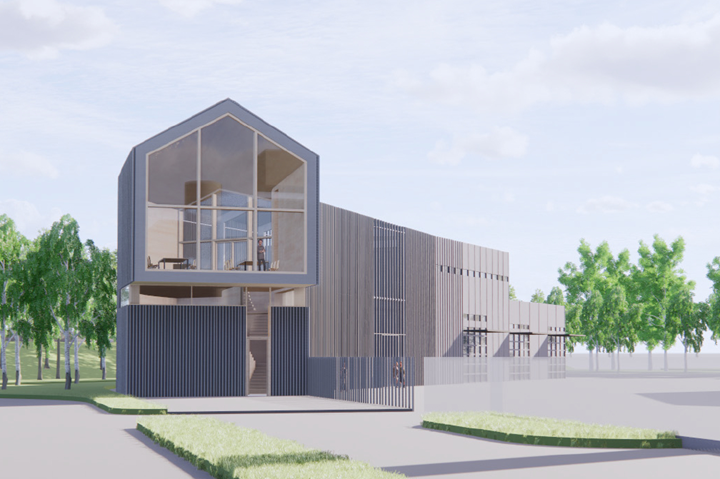AIMPLAS develops pultruded bio-based profiles for rural and urban development
European BASAJAUN project to optimize sustainable urban development and improve the rural economy via novel bio-based materials, products and building systems.

All photo credit: AIMPLAS
The European BASAJAUN project, led by Tecnalia (Gipuzkoa, Spain), aims to construct two full-scale demo buildings in Finland and France over a period of 48 months using as few forest resources as possible, as well as digitizing the entire construction industry value chain. The goals are to boost the rural economy and optimize the use of forest products for sustainable urban development through new materials and construction systems based on a circular economy of wood.
As part of this 30-partner consortium, AIMPLAS (Valencia, Spain) will be participating in the development of bio-based profiles manufactured by pultrusion using bio-polyester resin and basalt fibers, as well as improving fire behavior; the company says it will be drawing on its experience in previous projects such as OSYRIS, in which materials of renewable origin were developed to build construction panels for office and residential interiors. The materials produced will be adapted and functional verification will be performed before manufacture of the final prototypes. AIMPLAS’ processability will then be checked, combustion will be analyzed and the materials will be mechanically characterized.

Other developments expected within the framework of the project include thermal insulation using foams manufactured from renewable sources, wood-plastic composites (WPC), fire-resistant composites, bio-based adhesives for laminated wood products, panels manufactured with forestry and wood waste and fire-resistant water-based varnishes.
Related Content
-
Cryo-compressed hydrogen, the best solution for storage and refueling stations?
Cryomotive’s CRYOGAS solution claims the highest storage density, lowest refueling cost and widest operating range without H2 losses while using one-fifth the carbon fiber required in compressed gas tanks.
-
Combining multifunctional thermoplastic composites, additive manufacturing for next-gen airframe structures
The DOMMINIO project combines AFP with 3D printed gyroid cores, embedded SHM sensors and smart materials for induction-driven disassembly of parts at end of life.
-
Plant tour: Teijin Carbon America Inc., Greenwood, S.C., U.S.
In 2018, Teijin broke ground on a facility that is reportedly the largest capacity carbon fiber line currently in existence. The line has been fully functional for nearly two years and has plenty of room for expansion.













